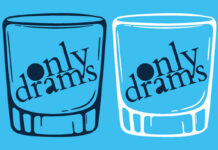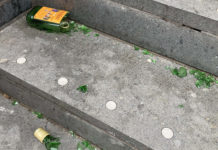Bar, restaurant and hotel owners could be missing out on substantial sums, writes tax adviser Andrew Stanley

THE low profile of capital allowances and the complexity of the rules have resulted in tens of billions of pounds of tax relief being unused.
It will take many landlords and licensees by surprise to know that they may be sitting on substantial unused tax relief, perhaps worth hundreds of thousands of pounds.
Capital allowances are a form of tax relief on items (or assets) bought for use within a business. Phone systems, computers and equipment in a licensed establishment may all qualify for capital allowances.
Operators wishing to unlock tax relief must act now or risk missing out.
Any accountant worth their salt should pick up on these, but certain fixtures and integral building features may also qualify, such as electrical wiring, cold water systems, lifts, heating and air conditioning systems.
Claiming capital allowances on fixtures and building features requires a level of specialist expertise beyond that which a general accountant could be expected to possess.
This is especially relevant for hospitality and licensed businesses which, by their nature, have expensive or numerous fixtures and features, such as artwork or decorative light fittings which are integral to the running of the business, and whose operators frequently have the most to gain from thorough assessment of capital allowances.
Capital allowances can also add to the monetary value of premises. This is great news for sellers and, it has to be said, licensed businesses that encounter hard times and go into receivership.
When it comes to fittings and building features, a full survey of the property is necessary.
The actual claim is determined by the property and its usage.

The key test is if the item is used for the business (therefore claimable) or forms part of the setting where business is carried out (un-claimable).
This distinction is not as clear cut as you might think and can vary greatly from business to business; for example, a hotel can claim for a chandelier as it is intrinsic to the ambience of the hotel, whereas a factory cannot.
The rules governing which items are eligible to be pooled for this form of tax relief are complex and vary significantly from building to building and across different industries.
Due to the variable nature of what is claimable and the fact that a substantial amount of case law needs to be brought into consideration, it is vital to take professional advice to ensure every eligible item is included in the pool in order to get a claim agreed with HMRC.
The Finance Bill 2012 has changed the way capital allowances work at the point of sale, however the central reform is yet to be enacted.
The principal rule, which comes into effect in April 2014, is the introduction of mandatory pooling of capital allowances.
Hospitality businesses by their nature have numerous fixtures and fittings.
From this date all commercial properties must be fully assessed and capital allowances pooled, recorded and transferred to the new owner.
If this does not happen by the book then the opportunity to claim simply disappears.
Businesses wishing to unlock tax relief need to act now or risk losing this major tax benefit.
• Andrew Stanley is the managing director of STax tax associates.
Images – Andrew Stanley said capital allowances can be claimed on fixtures considered integral to a venue, such as lighting.



















